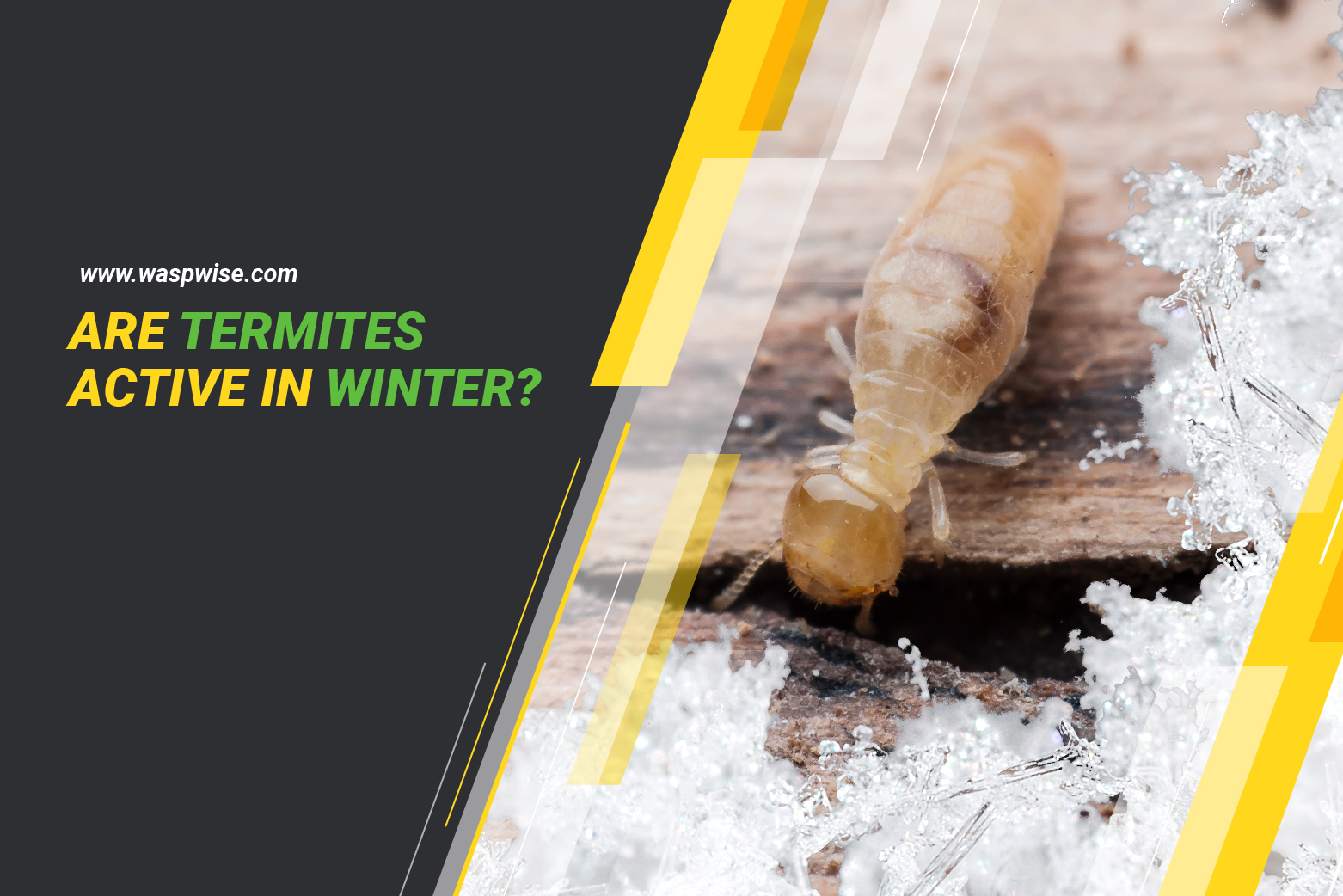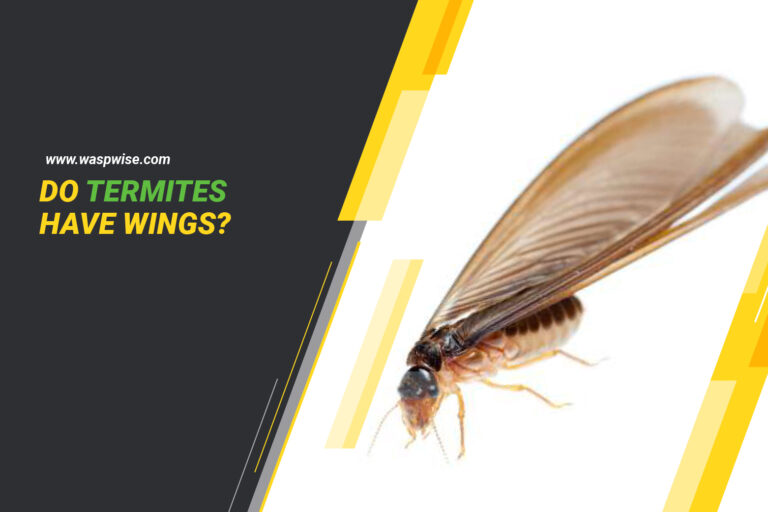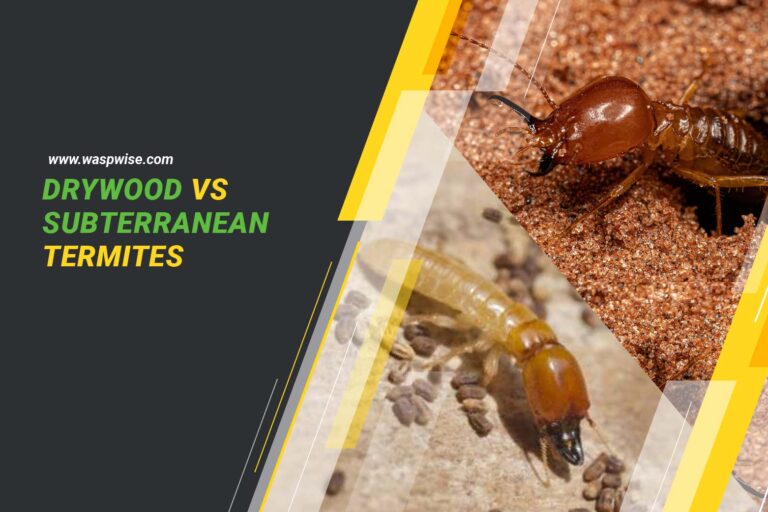ARE TERMITES ACTIVE IN WINTER?
Yes, termites can be active in winter, although their activity level depends on several factors, such as the species of termite, location, and temperature. Generally, subterranean termites tend to be less active during winter because they prefer warmer temperatures and need moisture to survive.
UNDERSTANDING TERMITE BEHAVIOR IN WINTER
While some termite species do slow down or become less active during the colder months, others remain active year-round. Some termites may even become more active during winter as they seek warmth and food sources. Weather conditions such as rain, snow, and frost can also impact their activity, as these pests may need to adapt to changing environmental conditions. By understanding termite behavior in winter, you can take steps to prevent infestations and protect your home from potential damage.
Do Termites Hibernate?
Termites do not hibernate in the same way that many animals do. Instead, they have adapted to survive in various environmental conditions, including cold temperatures. Some termite species may become less active during the colder months, but they do not enter a true state of hibernation. Instead, they may slow down their activity and seek out warmer areas or sources of food. Other termite species remain active year-round, regardless of the weather conditions. Ultimately, the behavior of termites during the winter months will depend on the specific species and their adaptations to their environment.
Do Termites Swarm In Winter?
Termites usually swarm during warm and humid weather in spring or summer. However, some termite species may also swarm in milder climates in winter. Termites can continue to swarm year-round in southern US states like California, Arizona, Texas, Louisiana, Georgia, Florida, and parts of the Carolinas. Even during winter, indoor swarms are possible if a colony has established itself in a building. It’s important to stay alert for signs of termite activity, such as discarded wings or mud tubes and tunnels, throughout the year. Contact a pest control company immediately if you suspect a termite infestation.
Did you know?
Termites never sleep and work 24 hours a day, seven days a week.
SIGNS OF TERMITE ACTIVITY IN WINTER
Termites are less active during winter but can still cause damage, so watching for signs of activity year-round is crucial. Signs of termite activity in winter include discarded wings, mud tubes, wood damage, and swarmers. Contacting a professional pest control company is important if you suspect an infestation.
Can Termites Survive Freezing Temperatures?
Termites cannot survive freezing temperatures for extended periods. Termites can die if the temperature drops below 20 degrees Fahrenheit (-6 degrees Celsius). However, some species of termites have adapted to survive in colder climates by building their nests deeper in the ground, where temperatures are warmer. Additionally, termites may seek shelter in structures to avoid freezing temperatures. Nonetheless, freezing temperatures can still threaten termite colonies and help control their populations in areas with cold winters.
PREVENTING TERMITE INFESTATIONS IN WINTER
Prevention methods for termite infestations in winter are not much different from those used year-round. Regular inspections of your property, including your foundation, roof, and plumbing, can help detect any signs of termite activity early on. It’s also important to eliminate any sources of excess moisture in and around your home, such as leaky pipes or standing water, as termites are attracted to damp environments. Additionally, removing any wood debris or storing firewood away from home can help deter termites from accessing your property. It’s essential to take immediate action to prevent further damage to your home. If you live in an area with a high risk of termite activity, consider investing in a termite barrier or treating your home preventatively with termite control products.
Can You Treat Termites in Winter?
Even though termite activity may be less noticeable in colder months, it is still possible to have an infestation during this time. Professional pest control companies have the necessary equipment and expertise to treat termite infestations, regardless of the season. It’s important to promptly address any signs of termite activity to prevent further damage to your home.
FREQUENTLY ASKED QUESTIONS
At What Temperature Do Termites Die?
Termites are very adaptable insects and can survive in various temperatures. However, they thrive in temperatures between 75-95 degrees Fahrenheit. When temperatures drop below 25 degrees Fahrenheit, termites can experience difficulties with bodily functions, and prolonged exposure to freezing temperatures can lead to death.
Do Termites Lay Eggs During Winter?
Yes, termites do lay eggs during the winter months. Termites are active throughout the year, and their reproductive behavior is no exception. Some termite species, such as subterranean termites, tend to have a peak in reproductive activity during the winter months.
How often should I inspect my home for termites during winter?
Inspecting your home for termites at least once a year, regardless of the season, is recommended. However, if you live in an area with a high risk of termite activity, increasing the frequency of inspections to every six months or even quarterly is a good idea.







